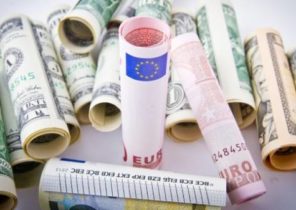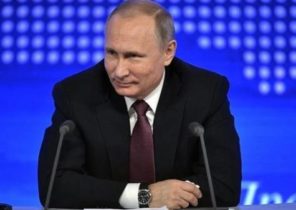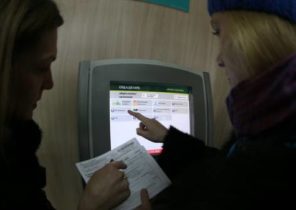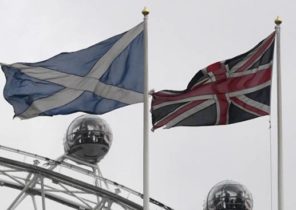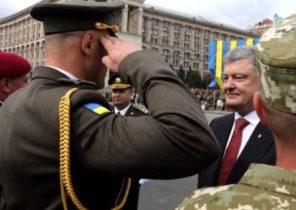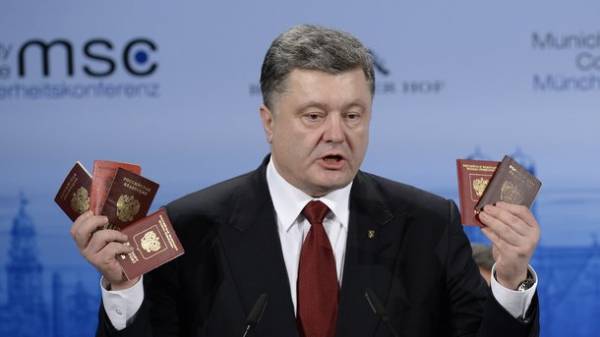
Friday, February 17, in Munich, Germany kicks off 53rd annual Munich security conference. It will last for three days, although informal events will start on Thursday 16 February. This year the organizers expect more than 500 participants, 120 government delegations, more than 30 heads of States and 80 foreign Ministers and defense, including Vice-President Mike Pence, Secretary of defense James Mattis and Senator John McCain, who will lead the Congress delegation. The Ukrainian delegation headed by Poroshenko. The agenda of the Munich conference 2017-European security architecture after the presidential elections in the United States, and the future of NATO and the EU. Many Western publications have dubbed the current behavior of Europe as a “post-trompowsky shock”. Authoritative American and European analysts predict a great deal of the USA with Russia and the weakening of NATO and the EU. Do not bypass the parties of the Russian military aggression against Ukraine and sanctions: in many European capitals, influenced by the rhetoric of the new Administration trump is already talking out loud on the revision of the sanctions policy. It is important, according to participants of the Munich conference, to prevent the lifting of sanctions against Russia until full implementation of the Minsk agreements. Otherwise the myths about a new “cold war” and the return to the policy of “spheres of influence” will become a reality.
The future of the EU, West and NATO are the main problems to be discussed at the Munich security conference in 2017. According to the Chairman of the conference Wolfgang Ischinger, perhaps now the international situation is security the most unstable since the Second world war.
“This grim prospect before the arrival of world leaders for the 53rd Munich security conference. In addition, there is a huge uncertainty about the transatlantic relationship. Europe seeks to learn more about foreign and security policy trump. If the U.S. leadership will continue to praise Brexit and pursue a policy to weaken the EU, we will see transatlantic crisis, compared with which the war in Iraq seem relatively small schism (in the ranks of NATO. – Ed.)”, – believes Ischinger. According to him, the fundamentals of the West and the liberal international order proved to be weak in the face of new challenges. More and more people in democratic countries are advocating the closure of borders and focus on their internal problems, as called for in the new US Administration.
“If the U.S. leadership will continue to praise Brexit and pursue a policy to weaken the EU, we will see transatlantic crisis, compared with which the war in Iraq seem relatively small schism (in the ranks of NATO. – Ed.)”
Perhaps, it is the policy of the new American Administration will be the top theme of the Munich conference in 2017. “The Munich security conference will be the first opportunity for representatives of the Administration trump to speak at the international forum and represent the priorities of their foreign policy and defense strategy. Administration sends a powerful team, including the Vice-President of Pensa, Minister of defense of Mattis and the Secretary of homeland security Kelly. Senator John McCain will again lead a delegation of U.S. Congress”, – said the Professor of international politics and Dean of the faculty of Economics and political science St. Gallen University, a former member of the group of experts of the German Chancellor James Davis.
Stephen Hadley, a former adviser to George Bush on national security suggests that the first 6 months of the Administration’s policies trump would be devastating. “The question is, what trump wants to build after that?” writes Stephen Hadley for The Washington Post.
According to American experts, while it looks like trump will try to rebuild relations with Russia, to make her more an ally than an enemy. Although, according to other analysts, perhaps there is a calculation to get from Russia more help in the fight against ISIS, it is distant, therefore, from Iran. But the truth is that only 20% of Russian air strikes in the past year occurred in positions in Syria. For comparison: Turkey in 73% of cases bombed ISIS, and the coalition of US and EU countries – 94% (this is referred to in the third edition of the annual report “Post-Truth, Post-West, Post-Order?”). So perhaps the U.S. should reconsider its priorities for cooperation with Russia in the fight against ISIS.
Russia this year at the Munich conference, and in 2015, will represent the head of Russian foreign Ministry Sergei Lavrov. Two years ago on one of the discussion panels the participants have ridiculed his answer to the question of the head of the Committee of the European Parliament Elmar Brok on the annexation of Crimea. Then Lavrov said that “Russia, under the UN Charter, protect the citizens of the Peninsula…”. Last year the Kremlin in Munich was represented by Prime Minister Dmitry Medvedev. He talked about “the civil war in the East of Ukraine”, and after it shot down Russian “Beech” Malaysia Board MH-17, reports USA about the presence of Russian troops in Ukraine and the speech of Petro Poroshenko at the Munich conference in 2015, where he presented a passport of the Russian military “lost” in the Donbass.
At the Munich conference-2017 and the theme of the annexation of Crimea and Russian military aggression in the Donbass, which does not stop for a third year, will also be in the top priority. First, it will have to say Petro Poroshenko, who for the third consecutive year will represent Ukraine at the conference. Secondly, the Ukrainian question in the agenda for discussion in the context of the impossibility of easing of sanctions without full implementation of the Minsk agreements.
“In Ukraine, Russia has violated several key principles governing European security. But even despite this, the sanctions can be weakened without any progress on the issue of implementation of the Minsk agreements”
“In Ukraine, Russia has violated several key principles governing European security. But even despite this, the sanctions can be weakened without any progress on the issue of implementation of the Minsk agreements. If the Administration trump will go to significant deal with Moscow, it may mean the beginning of a new era of great powers in determining the fate of smaller countries (the return to the policy of “spheres of influence”. – Ed.). Some European leaders before joining trump’s office warned: “the Rules on which rests an international order and from which decades depended the safety of the West, will be weakened. The deal with Putin will not bring peace. On the contrary, will make war more likely,” – said in the annual report “Post-Truth, Post-West, Post-Order?”, published on the eve of the conference.
According to American journalist and analyst Robert Kagan, at the Munich conference the participants will discuss, will the US to return to a policy of “spheres of influence” (politics of multipolarity. – Ed.) in which the US is inferior to Russia’s and China’s unconditional dominance over their neighbors. And this, according to American journalist and political scientist, will be the worst dramatic burst of belief from the times of the cold war, when in the nineteenth century, power politics was a dangerous relic of the past.
Last year on the sidelines of the conference, Medvedev said, “in fact, we have slipped during the new cold war. In his speech, he kept coming back to the speech of Vladimir Putin at the Munich conference in 2007. Exactly 10 years ago, he criticized the policy of a unipolar world that is being imposed on US, and the only, according to him, the decision-making mechanism for the use of military force could only be the UN Charter. In an attempt to restore the bipolar world order and back in the days of the cold war, Russia annexed Crimea and unleashed war in the Donbass, which has already claimed over 10 thousand lives of Ukrainians, and neglects the UN Charter, using the veto to the resolutions on Ukraine.
Nevertheless, the organizers of the Munich conference invited Vladimir Putin to give a speech this year. “In 2007 we had the speech of President Putin. And I don’t want to gloss over that I made great efforts, in December he traveled to Moscow to support the idea that, if in 2017, 10 years after 2007, he again delivered a speech to summarize what happened in 10 years. But Moscow thought about it, the result is known — this year he will not come. But the ball remains on our side, and we’ll try to do it next year again. If this year is not work, maybe in the next” – said Ischinger.
The return to a bipolar or multipolar world, according to analysts and experts for the Western security architecture threat, if not threatening. Especially, according to American journalist and political scientist Robert Kagan, with rising activity and ambitions of Russia and China – the two great revisionist States.
Separate topic of discussion on the sidelines of the Munich conference will be the confrontation between Russian propaganda and the elements of the hybrid information war. According to experts of the Atlantic Council, in the United States on the propaganda of Russia annually spends about $400 million In Europe the number is much higher. According to analysts, to a new level and cyber threats. Thus, according to American experts, the users of social networks (mainly Twitter and Facebook), which during the election campaign in the United States campaigned for trump, now on the eve of elections in Germany write posts against Angela Merkel.
“Across Europe, members of the so-called new “international populism” rely on “alternative” media, which are regularly spread by Kremlin-friendly messages and fake news. And I think it pays off: in Germany, according to the poll for August 2016, 30% support populist (far-right. – Ed.) “Alternative for Germany”, and 31% of the left wing trust Vladimir Putin more than Angela Merkel,” – said in the report “Post-Truth, Post-West, Post-Order?”.

